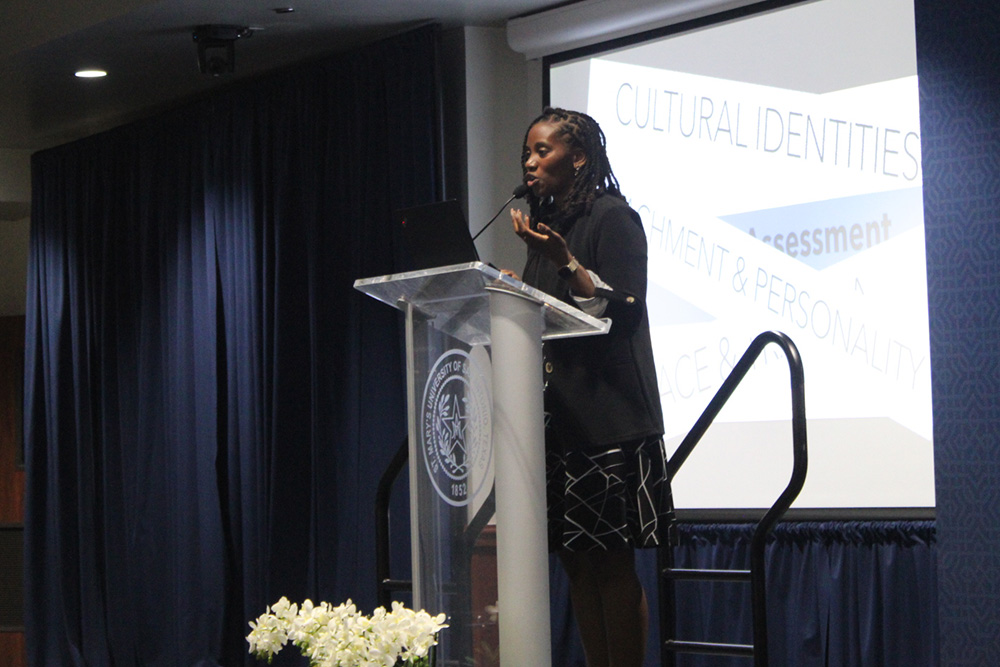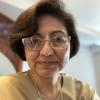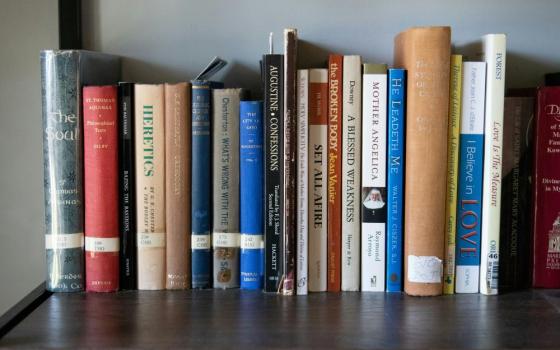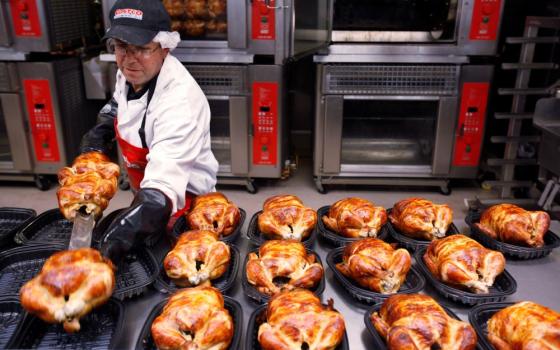
Psychologist Crystal Taylor-Dietz leads the workshop "Candidate Assessment Through the Lens of Inculturality" at St. Mary's University in San Antonio Sept. 6, 2025. (GSR photo/Helga Leija)
When I was preparing to enter religious life, one sister in the assessment team questioned my readiness to enter, dismissing me as immature and helpless because, at 24, I was still living with my parents. From her perspective, this signaled dependence. But in my Hispanic culture, at the time it was expected that an unmarried young woman lived with her family. I was working, contributing to my household, and deeply discerning my vocation. What she read as immaturity was, in reality, cultural misunderstanding.
That memory came back to me during a Sept. 6 workshop I attended at St. Mary's University in San Antonio, hosted by the National Religious Vocation Conference. The day was led by Crystal Taylor-Dietz, a psychologist whose expertise in candidate assessment pushed us to ask not just how we evaluate potential new members, but how our judgments can be clouded by cultural and generational bias.
Candidate assessments are meant to help congregations discern whether and how a candidate might grow in community life. They draw from psychological evaluations, behavioral assessments and cultural considerations. Ideally, they don't just measure readiness for community life, but also reveal the story a candidate carries: trauma endured, resilience built, personality shaped, and hopes for the future.
But here's the challenge: Assessments are only as useful as the lens through which they are read. And that lens is often clouded by bias, assumptions and a lack of cross-cultural awareness.
What I learned is that several themes keep coming up again and again in vocation and formation ministry, including cultural and generational differences. Behaviors that might look like immaturity, lack of initiative, or dependence aren't always what they seem; they can reflect cultural norms or generational realities.
Advertisement
Mental health came up as well. Conditions like anxiety, trauma and mood disorders obviously affect community life, but so do resilience, therapy and the support systems a person brings with them.
Psychological testing, Taylor-Dietz noted, is only a starting point. It gives us a snapshot, but it has to be paired with ongoing observation, honest dialogue and real community accompaniment. All of this made me think again about what we are really looking for in a candidate — and how much our own blind spots can get in the way.
A lacking formation process
When asked about surprising findings in assessments, Taylor-Dietz noted "the lack of consistent use of candidate assessments throughout the formation process."
"Candidate assessments provide a comprehensive snapshot, but they are limited to the information the candidate is willing to share," she told me. "The effectiveness of candidate assessments depends on the candidate's honesty and openness about their experiences," and "these assessments should be used as a supplement to other information gathered by the congregation."
"Sharing additional information learned about the discerner" — how the candidate interacts, handles responsibility or manages conflict — "with the assessment team could provide a more comprehensive understanding of the candidate," Taylor-Dietz said, noting that the current lack of shared information is a gap many communities could address to strengthen the formation process.
She also stressed that mental health is not a disqualifier but a reality to be integrated. Candidates may carry diagnoses of anxiety, ADHD, or bipolar disorder; however, the question is not whether they are "perfectly well," Taylor-Dietz said, but whether they have developed coping strategies, engaged in therapy, and built resilience that will allow them to flourish in religious life. Communities can play a role here too, from encouraging therapy to making use of telehealth for those in remote missions.
Bias and belonging
Perhaps the most sobering theme was bias. Microaggressions — those small, often unconscious slights — can chip away at a candidate's sense of worth. A passing comment about someone being "too emotional," or a stereotype about a cultural practice, for example, can leave lasting wounds.
Addressing bias requires more than goodwill, Taylor-Dietz said; it takes intentional practices like slowing down, naming assumptions and cultivating dialogue across differences.
This is especially true in multicultural communities. To evaluate a candidate fairly, one must recognize the diversity of family structures, cultural devotions and economic pressures they bring with them. In my case, living with my parents at 24 might have looked like immaturity and dependence through one cultural lens, but in my Hispanic community, it was seen as a sign of respect, responsibility and commitment.
Assessments are not about labeling someone 'ready' or 'unready.' They are guides to understanding how this person might grow within our way of life, and how our community might grow by welcoming them.
A communal task
I believe that candidate assessment cannot be reduced to a checklist. It requires conversation between professionals and formation teams, as well as an honest dialogue within communities about what they value and how they will accompany new members.
I have long observed in community that every one of us carries a story that shapes our behavior, aspirations and challenges. If we personally carry a story that influences who we are, then it is only fair to recognize that candidates do as well. And yet, despite our experiences, all members — current and new — can contribute meaningfully to the life of the community. Acknowledging this is essential to evaluate them fairly and to provide a compassionate and informed formation process.
As Franciscan Sr. Julia Walsh, a participant at the workshop, said, "I can allow others the same graces I would want because we're all learning and growing here." As a vocation director, she hopes to bring that awareness into her ministry by encouraging her sisters to be more sensitive to differences, forming new members in a way that allows them to flourish and be themselves, without forcing them into narrow expectations.
Passionist Fr. John Schork, another participant, reflected on the multicultural nature of his community, noting the decline from 68 to 34 members in their province. "I was struck by how essential it is to approach candidate assessments with both cultural sensitivity and a commitment to collaboration, so that we truly understand the person before us," he told me.
In the end, assessments are not about labeling someone "ready" or "unready." They are guides to understanding how this person might grow within our way of life, and how our community might grow by welcoming them. As our congregations face declining numbers, shifting demographics and growing diversity, it is important to remember that welcoming new members is not simple. Often the candidate is the only person in formation, thus needing spaces where they can grow and flourish, and where our communities can both support and be enriched by their presence.







